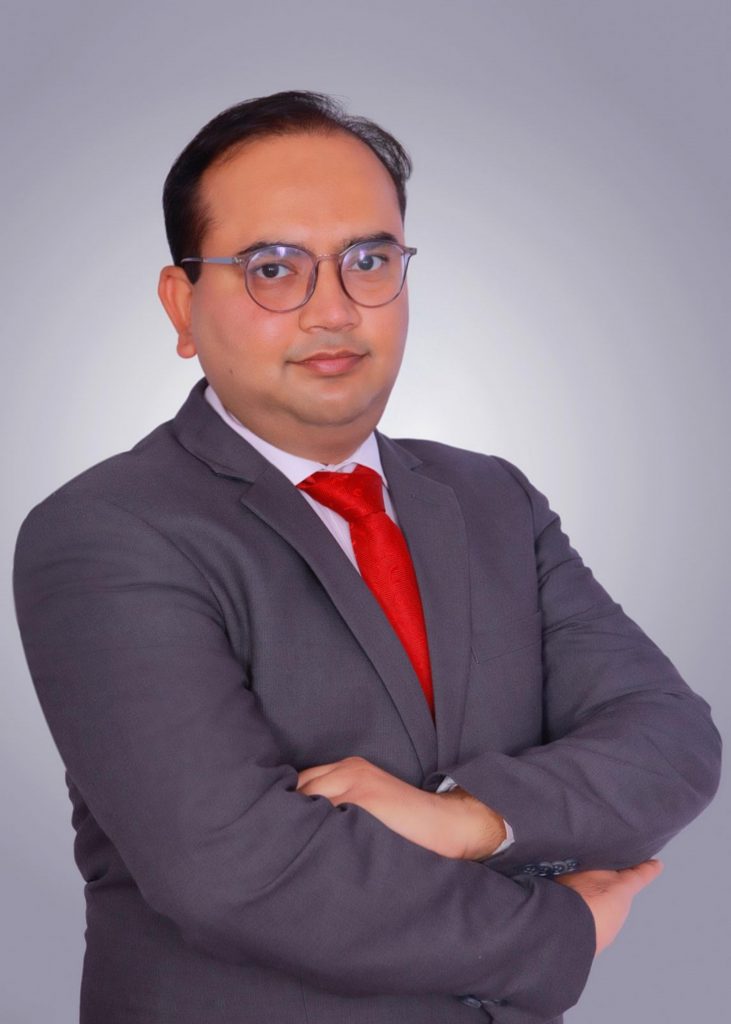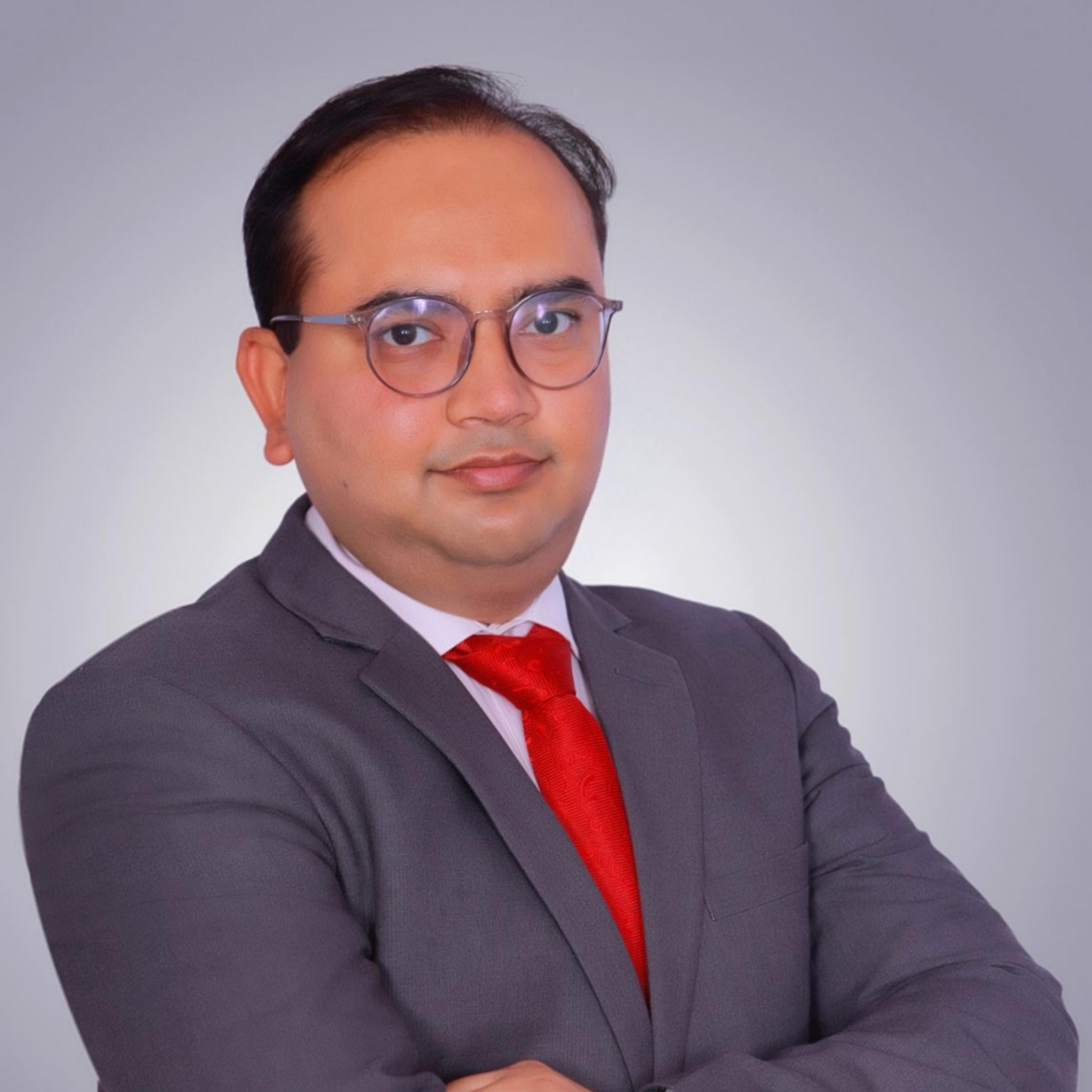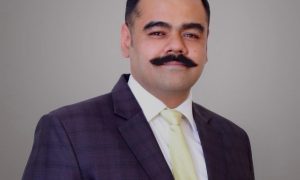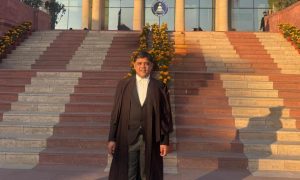This interview has been published by Namrata Singh and The SuperLawyer Team

It’s a pleasure to have you with us. Could you share with our readers a bit about your journey, from how you embarked on your career in law to becoming the Managing Partner at Imperial Law Offices? What inspired you to choose law as your career path?
Thank you Namrata and team Super lawyer for having me here. Well my journey in law started with guidance from my best friend’s father Mr. L.D. Borasi, who was an Additional District Judge then in Madhya Pradesh. He knew me personally and was of the view that I could do really well in law. On his encouragement I did my research on the subject and came to know that the legal profession suits my personality. Then I took admission in BA LLB (Hons.) course in Devi Ahilya VishwaVidyalaya, Indore (M.P.). I completed my law in 2009 and started my practice in Delhi, things started happening. and here I am 15 years later.
As a co-founder of Imperial Law Offices, what inspired you to establish your own legal practice, and what unique approach do you bring to the legal profession?
The idea of embarking upon the entrepreneur journey was always there in the back of mind. However, I was very lucky to have an opportunity to work in the top law firms of the country. It was a very enriching experience working there and was a tough decision to quit the job. The idea of starting Imperial Law Offices germinated after meeting my co-partners who themselves having worked in top law firms of the country were looking to start a law firm. As a law firm we bring to the table a full service law firm for our clients with partners having more than decade and a half years of experience of representing leading Multinational Companies in the country. The Firm’s global perspective is based on its deep knowledge of the sector/industry and the prevalent practices. The team of professionals understand issues across a broad spectrum of business and legal practices. This fluency allows the Firm to bring the right talent and knowledge to deliver commercially pragmatic advice to our clients.
Your extensive experience (as a litigation lawyer) spans across various legal domains, including Insolvency & Bankruptcy, Tax, Real Estate and Arbitration. Among these, do you have a particular area that you find most fulfilling to work in? Could you tell us why?
These are my core practice areas, it is very difficult to choose between them. However, the best thing I like about being a litigation lawyer is that it always keeps you on the edge and keeps throwing new challenges at you. However long you may have practised there will always be something or the other which you will be dealing with for the first time. As they say, you are always a student of law. Each day you learn new things. So there is never a dull day in litigation. This is what keeps you going. Another thing which is very satisfying is the ability to make an impact on society and help others.
Given your extensive experience in taxation and insolvency matters, what advice would you give to young lawyers aspiring to specialize in these areas of law?
Both these fields, especially taxation, are very dynamic in nature. There are lots of amendments, notifications, circulars and clarifications by the government very frequently on these subjects which govern the interpretation of law. Not to mention the day to day case laws coming in from courts/ tribunals. So one of the key features of practicing in these subjects is to be able to trace out the legal history of the provision you are dealing with to understand the mandate of the legislature. Another very important part of practicing in these areas of law, especially while dealing with international taxation matters is that you will have to deal with various international treaties and international jurisprudence. Apart from the above strong knowledge of constitution law and basic understanding of accounting principles are must. So if you have these basics covered, you can excel in these subjects.
For the current generation aspiring to build successful legal careers, what would be your top piece of advice or mantra for achieving professional excellence and fulfilment in the legal field?
To young lawyers my piece of advice is that one should inculcate the habit of reading. There are no shortcuts to success. Your ability to read and analyse will set you apart from others. Also never make your belief on the basis of the opinion of others without actually reading the provision/ judgement yourself independently. First read the provision/ judgement unbiased by the opinion of the others or common belief, then see what others are saying. This habit will give you a closer understanding of the law and will eventually lead you to success. Also your command over language is a very important factor which will contribute towards success.
In today’s world where there are lots of branches of law apart from litigation, where you can excel relatively easily. Career in litigation, unlike old times, has become a choice. Clearly life in litigation initially is not very financially gratifying, however if you have the bent for it and are willing to put in the long hours, it can prove to be a very enriching career.
You’re an Advocate on Record at the Supreme Court of India. Can you shed some light on the challenges and significance of clearing the Advocate on Record exam, and how it has impacted your legal career?
The Advocate on Record exam is more of a practical knowledge based exam. If you are regularly practising in the Supreme Court and are well aware of the practices and procedure of the Supreme Court it becomes slightly easier to clear the exam. The next big challenge in this exam is that question papers are very lengthy, so you will have to be very clear and concise in your answers, it is only then you will be able to attempt all the questions.
Qualifying the exam really helped me as it gave an added advantage as a litigation lawyer. Clients/ friends from high courts started approaching me to file matters before the Supreme Court. This increased my client base, which was very important for me professionally as my independent practice is quite new. As a law firm we were able to comfort our clients that we can represent their cases till the Supreme Court. Also one of the good things about practicing as an AOR is that you get to do matters from different fields of law, one day you are arguing a criminal law matter and other day you may be dealing with a tax law matter related to transfer pricing. This type of variety is very rare otherwise. So it has been quite an enriching achievement.
Your involvement in landmark judgments and complex legal matters is evident from your extensive list of reported judgments. Among these, is there a particular case or judgment that you found particularly challenging or rewarding, and why?
I will tell you about the most recent ones before the Supreme Court and NCLAT. Last year I was approached to file a very complicated criminal matter wherein parties involved were from two rival political parties. In 2017, during a politically charged environment, there was a skirmish between the two parties during an election campaign involving exchange of gunfire, leading to cross FIRs from both sides. In the FIR against my client, SC/ST Act was falsely invoked, just to jeopardize his contention in elections. We were against dismissal of discharge applications by the courts below, especially qua SC/ST Act. There was a battery of senior advocates from both sides. It was a hard fought case, in which we were able to obtain a positive order from the Supreme Court in December 2023. This resulted in my client successfully contesting election this year. It was a very satisfying win, given the pressure situation and the amount of hard work that was put in by us.
The other very satisfying win was before NCLAT wherein we were challenging the NCLT order dismissing our petition seeking CIRP (Corporate Insolvency Resolution Process) against a very influential real estate company, on the ground that our debt is barred by limitation. In holding so NCLT had misinterpreted the definition of acknowledgement of debt and had also missed certain documents on the basis of which we were claiming extension of limitation. I argued the matter myself, the bench was initially not convinced, however, after two days of hearing accepted our arguments. This was a very satisfying win as initially the bench was totally against me and was not holding back in communicating the same to me ☺.
The most recent one was a anticipatory bail application which I argued before the Hon’ble Supreme Court, though it was a very regular matter, I was pleasantly surprised as Hon’ble Mr. Justice Hrishikesh Roy appreciated me for arguing the matter well in open court. It was a very special moment and a huge encouragement.
Starting your career in chamber practice before the Delhi High Court and Supreme Court must have been quite a journey. What valuable lessons did you learn during those formative years that still resonate with you today?
It was indeed a very enriching experience, because in a chamber practice being the only junior, I was expected to help my senior with literally everything, right from conferences with new client, coordinating with them and obtaining the documents, researching law points, drafting the petition, filing the petition, preparing for arguments, attending hearing (if you are lucky and your senior is busy in some other court, arguing the matter or at least starting the arguments till your senior reaches the courtroom ☺). And last but not the least raising invoices and making follow ups for like ever ☺. I was very lucky in my initial days, I got a chance to work with very good advocates who have now become Senior Advocate, Senior Partners at leading law firms of the country. I am still in touch with them and they keep helping me whenever I need them.
Whatever I have learned is virtually because of the time I had spent with my seniors and their constant encouragement. However, the most important thing which I have learned from my formative years is the importance of hard work and preparation. You will always be recognized for your hard work and preparation. Till date this habit helps me. Clients always have an eye on you as to how you are handling the matter. When they see your hard work and commitment, they remain with you even if the matter does not go according to your liking.
Thank You.


























